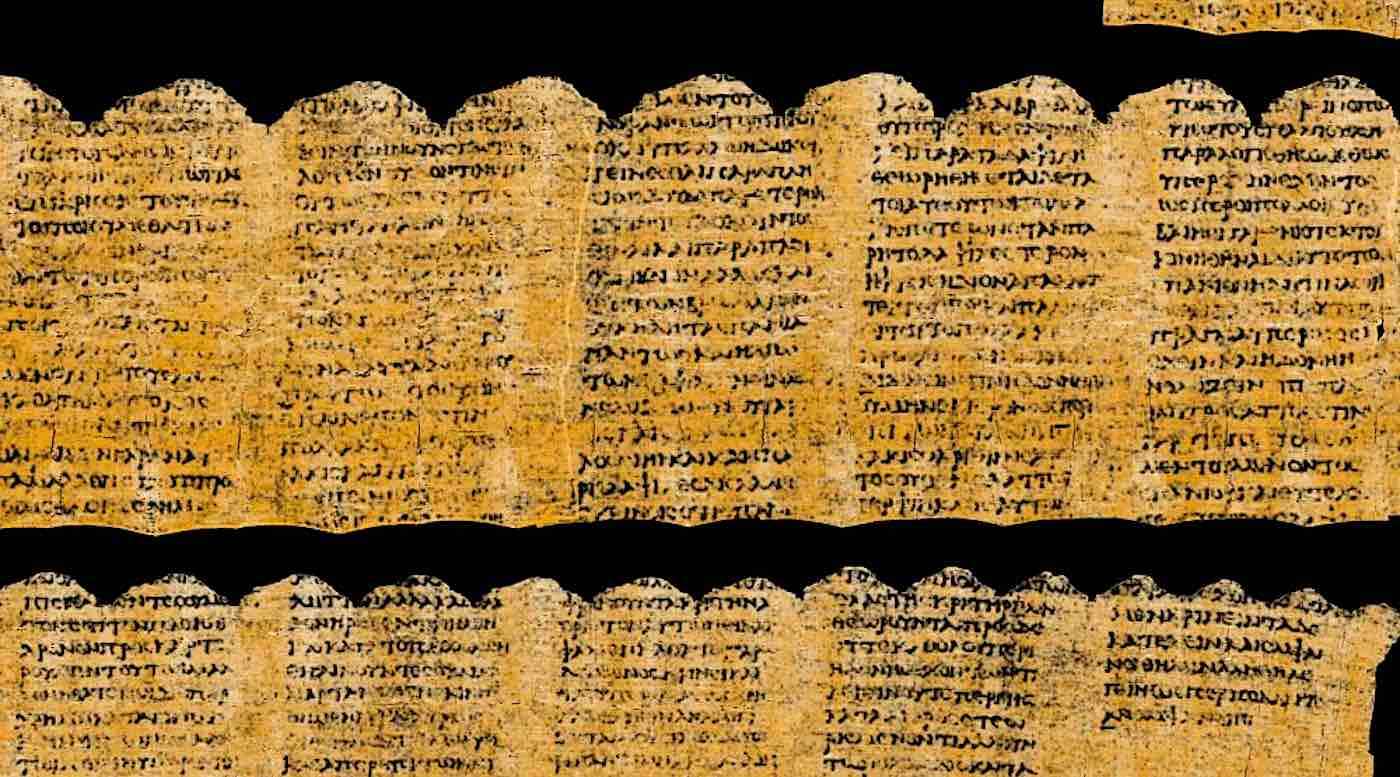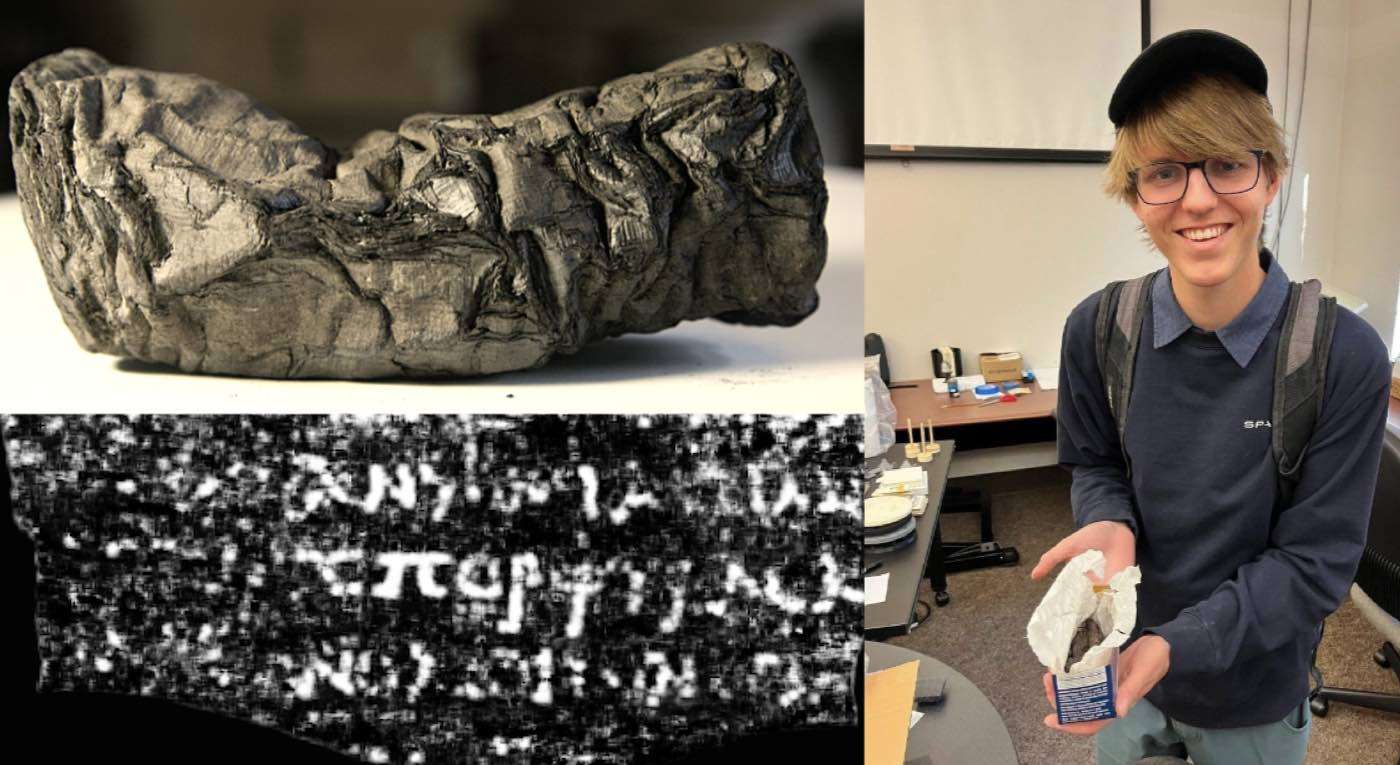Social Media Goes Crazy for Customer Who Went Above and Beyond to Mail $20 Tip
Going through his receipts, he found that instead of the customer copy, he had taken the signed merchant's copy with the tip amount on it.

In October, WS reported on the first winner of the Vesuvius Challenge, which sought to inspire young people to use AI technology to decode burnt scrolls found in a Pompeii library.
Now, the grand prize has been collected by Youssef Nader, Luke Farritor, and Julian Schilliger, who will split an amazing $700,000 bounty for their efforts.
Their skills were able to create a deep learning program that took a rolled-up scroll of papyrus that was turned to charcoal in the Vesuvius eruption 2,000 years ago, and decode 4 passages of 140 characters each, with at least 85% of characters legible.
Their submission was substantially more recoverable than almost all others, who tended to manage about 30%.
What did the scroll say? Well, it's merely one page in what appears to be a treatise, but it's believed the Ancient Greek talks about music, food, and how to enjoy life's pleasures.
"It's been an incredibly rewarding journey," Mr. Nader told the Guardian. "The adrenaline rush is what kept us going. It was insane. It meant working 20-something hours a day. I didn't know when one day ended and the next day started."
Silicon Valley figures Daniel Gross and Nat Friedman created the Vesuvius Challenge in March of 2023, to place up to $1 million in cash prizes in the hands of any engineers who could program AIs to read the carbonized papyrus.
The papyrus scrolls in question were found in Herculaneum, a city destroyed by Vesuvius' eruption, in a villa that may have belonged to Julius Caeser's father-in-law.
The collection of 800 scrolls was found 275 years ago, and represents the only intact library known from the Classical World. Many archives of thousands of clay tablets from the ancient kingdoms of Assyria and Babylon have been found, but being made of clay, they tend to last longer than papyrus.
The scrolls can't be unrolled—they would simply turn to ash—but some of them held at the Institut de France were imaged at the Diamond Light Source particle accelerator near Oxford by Gross and Friedman. These high-resolution CT scans of the scrolls were then released to anyone who wanted to try to decode them.
The picture above is just 5% of the scroll in question.
There were several prizes on offer; each related to a different scope of accomplishment.
Per the Vesuvius Challenge's webpage, Youssef Nader is an Egyptian Ph.D. student in Berlin who was able to read a few columns of text back in October, winning the second-place ‘First Letters Prize.' His results back then were particularly clear and readable, which made him the natural lead for the team that formed.
21-year-old Luke Farritor, college student and SpaceX intern from Nebraska, was the first person in history to read an entire word from the inside of a Herculaneum scroll (ΠΟΡΦΥΡΑϹ, "purple"). This won him the first-place ‘First Letters Prize,' a few weeks before Youssef's results.

And finally, Julian is a Swiss robotics student at ETH Zürich who won three ‘Segmentation Tooling Prizes' for his incredible work on Volume Cartographer. This enabled the 3D mapping of the papyrus areas.
"For the Grand Prize, they assembled into a superteam, crushing it by creating what was unanimously deemed the most readable submission," reads a release on the challenge website.
The papyrologists studying the decoded texts provide this sentence—from an Epicurean philosopher writing almost 2,000 years ago: "…as too in the case of food, we do not right away believe things that are scarce to be absolutely more pleasant than those which are abundant."
The scientists are working hard to publish a paper on the full extent of the work, and hopefully all involved finish the whole scroll, and more besides, in the not-too-distant future.
SHARE This Truly Incredible Achievement By Such Young Minds On Social Media…
Be the first to comment